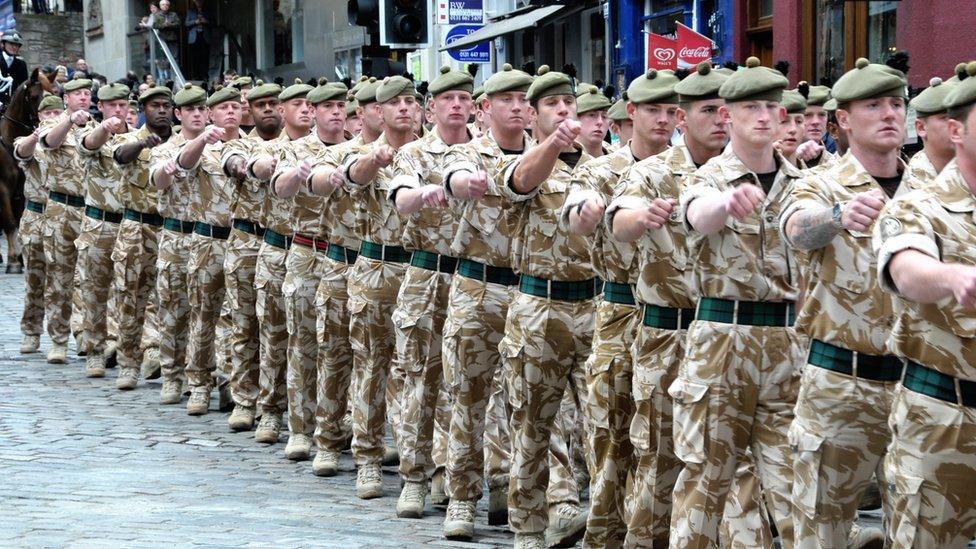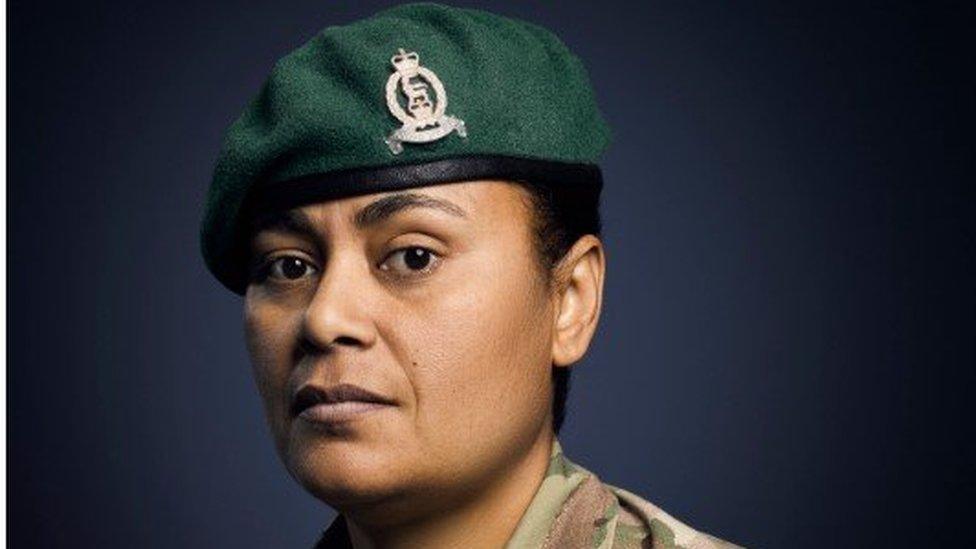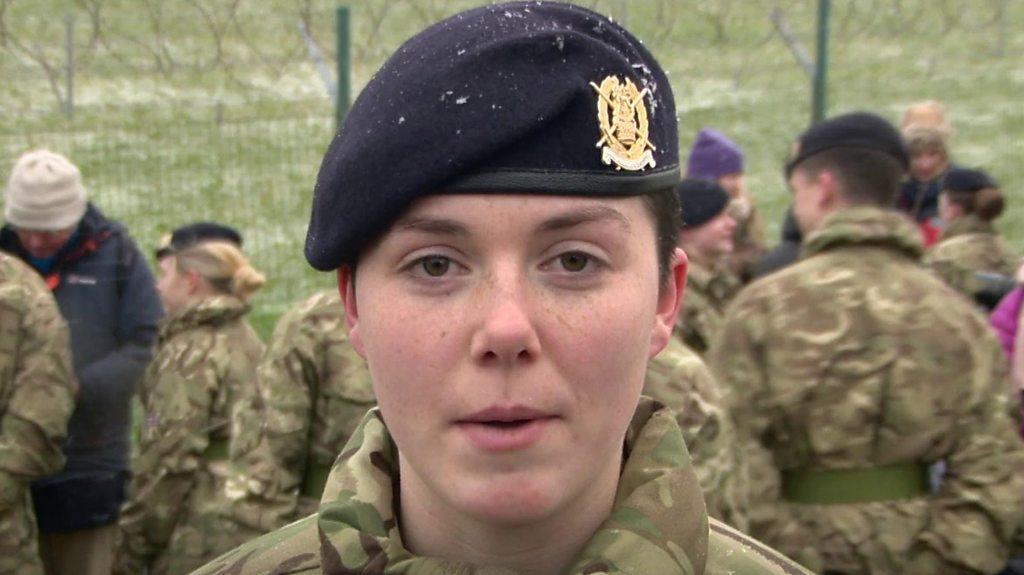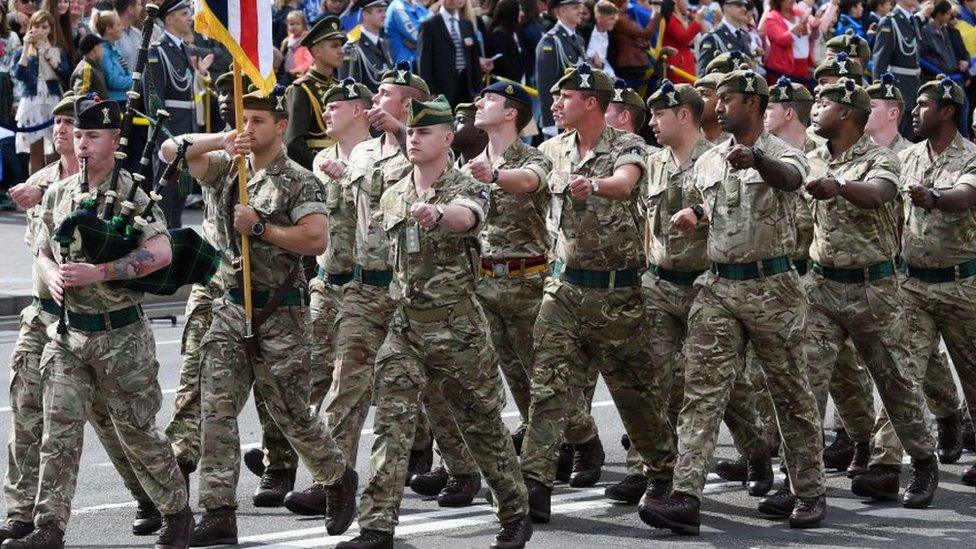Army recruitment system 'unacceptable', says defence secretary
- Published

Defence Secretary Gavin Williamson has labelled the Army's recruitment process "unacceptable" after it was revealed applications take an average of 300 days to be completed.
More than 100,000 people applied last year but only 7,441 were successful.
Army recruitment is overseen by private contractor Capita, and Mr Williamson said the firm and the government were "working hard to speed up the process".
The regular Army is currently 4,000 soldiers short of its target strength.
The BBC's defence correspondent, Jonathan Beale, said the Army had been spending millions of pounds on high-profile recruitment campaigns designed to reach its 82,000 target.
But while those seem to be attracting record levels of interest, that hasn't yet translated into filling the depleted ranks, he added.
Mr Williamson said he wanted "recruits who meet our world class standards [to] start their training as soon as possible".
One of the new Army adverts focuses on men being allowed to show their emotions
Computer systems used in recruitment for the Army, Navy and RAF have recently been upgraded for the first time in 20 years.
But while the lack of new recruits has been blamed in part on sub-standard recruitment processes, the quality of candidates has also been an issue.
An Army spokesperson said "large numbers" of people had been turned away because they were not "medically or physically up to it".
Two thirds of those who failed to meet the required medical standards had breathing problems, back injuries or leg injuries.
The Ministry of Defence said "a national recruiting call centre on its own has not worked," so it is now "returning to a more traditional system where potential recruits get help from professional recruiters and inspiring soldiers in their local areas".
A spokesman added: "We know it's been taking too long and people have gone elsewhere, which is why we're also making every effort to smooth the selection process and make further improvements to the time it takes to get new recruits to the start of their training."
Capita is yet to respond to the BBC's request for comment.
The news comes a month after head of the Army General Sir Nick Carter said Britain's ability to respond to military threats from Russia will be "eroded" without further investment.
- Published3 February 2018

- Published10 January 2018

- Published13 February 2018

- Published22 March 2021
